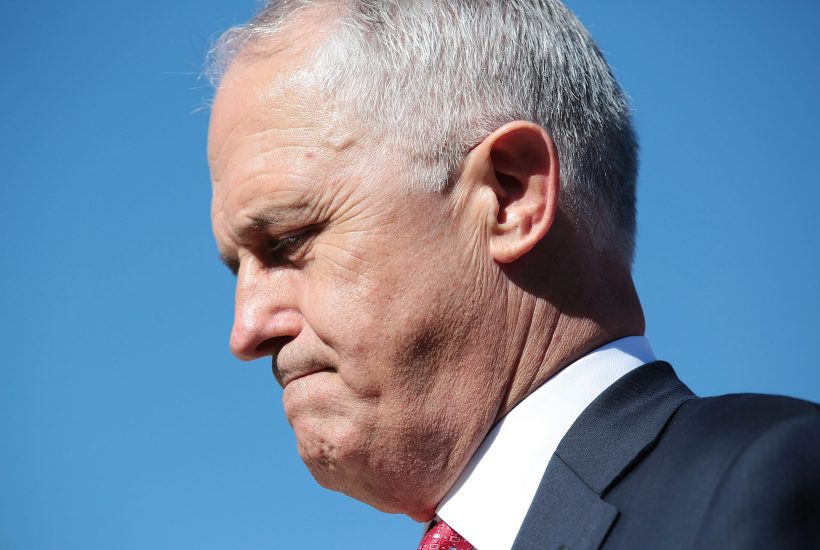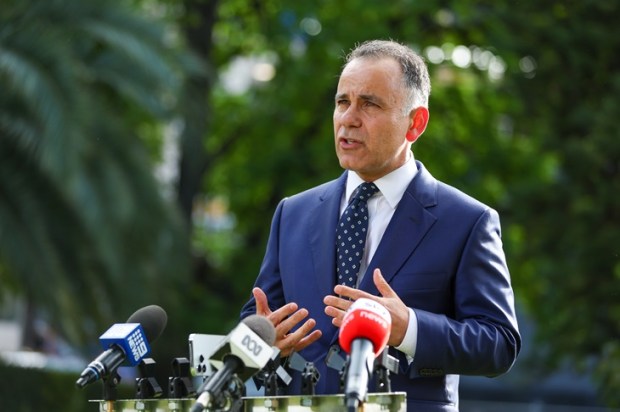Australia is well ahead of most of the West in suppressing coronavirus. Out of a population of 25 million Australia has so far recorded 6,600 coronavirus cases, with just 75 deaths. Being a federation, the national government of Liberal Prime Minister Scott Morrison has worked with eight state and territory counterparts – of both Labor and Liberal parties — not only to flatten the curve, but potentially squash it. Undergoing similar lockdowns to those that have shut down Britain, Australians mostly have accepted “iso” with good grace and humour, social distancing is practised by almost everyone, and there are great hopes that restrictions can be wound back in coming weeks.
As with most successes, there are many to whom much is owed, but Morrison as national leader in a crisis dwarfing even Australia’s bushfire disasters of just months ago has been a revelation. As a conservative prime minister, he has done whatever it takes to meet his declared “war aims” for the battle against livelihoods: saving lives and saving livelihoods. He has not only ensured health services have the capacity and sufficient resources to meet acute need (although the adequate supply of COVID-19 testing and PPE are hot issues in Australia as in Britain), but overturned the economic belief system of his fiscally and socially conservative party with massive cash injections onto the welfare system and into wage subsidies.
Morrison has kept the federation and Australia’s democracy from falling apart, and under his national leadership partisanship, jurisdictional rivalries and rampant egos have mostly been cast aside for the common good. He is leading what he has called a “national cabinet” of federal, state and territory heads of government that largely has kept them all generally singing from the same hymn sheet and reining in the zeal of some state leaders to shut down Australia’s economy and society even further. Granted, it hasn’t been perfect, as shown by the largest single source of coronavirus infections being from a cruise ship, the arrival of which in Sydney was caught up in federal-state demarcation confusion that led to infected passengers disembarking into the community to spread the virus and be the direct or indirect cause of tens of deaths.
But above all, Morrison has kept the nation together as a surprisingly inspirational leader. From an uncertain start in March, his daily press conferences have become confident and reassuring. His mastery of the detail is impressive, which itself gives confidence, but while as a speaker he is no Churchill – nor Boris Johnson for that matter — his tone and fatherly man-of-the-suburbs persona have won him plaudits and respect from across the spectrum, even from his Labor political foes. As Prime Minister, Morrison has gone from zero for his clumsy handling of the Christmas bushfire disaster to hero as a reliable, trusted pair of hands seeing the Australian nation through the biggest, most unexpected crisis for generations.
This Monday, the number of new COVID-19 cases in Australia was a mere handful, a testament to Morrison and all working alongside him to combat this invisible pandemic scourge. For Morrison, that should have made it a red-letter day, but it was hijacked and upstaged by a grossly ill-timed intervention when the memoirs of his deposed predecessor, Malcolm Turnbull went on sale after a drip-feed of juicy bits and serialisation the weekend papers.
Having been voted out as Prime Minister by his own MPs in August 2018, in 690 pages Turnbull recounts his own career as he unmistakably sees it: a glorious progress of one of the most brilliant men his country has ever produced. From his early life, his Rhodes Scholarship, his success as the barrister who bested the Thatcher government in 1987’s Spycatcher publication case (it is fortunate that the late Lord Armstrong cannot read the scathing and patronising manner in which Turnbull describes him as the British government’s star witness in Australia, depicting the then UK Cabinet Secretary as a cross between Sir Humphrey Appleby, Colonel Blimp and a hapless Charles Pooter), through to his leadership of 1999’s failed Republic referendum campaign, and becoming a wonder-boy merchant banker before he started his parliamentary career, Turnbull is always the star. For a political career marked by three great failures, the Republic campaign and his deposition as Liberal leader not once, but twice, Turnbull invariably finds others to blame for his downfall.
In justifying himself in his memoir Turnbull is relatively benign to his Labor opponents but merciless to his Liberal antagonists, above all his political arch-enemy and the man whom he sandwiched as Liberal leader and prime minister, Tony Abbott. Abbott is portrayed as a hard-right, bumptious political thug yet a weak leader wholly dependent on – henpecked by even – his powerful and charismatic chief-of-staff, Peta Credlin. Throughout his account of his own premiership, Turnbull constantly fingers Abbott for disrupting and undermining his leadership, and leading a hard conservative “insurgency” against him. Indeed, when it comes to his deposition in August 2018, in which Abbott was not a leading participant, Turnbull insists on calling it a “coup”; when he describes his overthrow of Abbott three years earlier, he goes to great lengths to claim he was not a plotter but the saviour of the nation.
More than a little of Turnbull’s book has a basis in reality. As Abbott’s chief-of-staff, Peta Credlin was indeed feared, ruthless and all-too-dominating over Abbott’s office and government, to an extent that not even Dominic Cummings has reached in No 10. Turnbull’s own agenda, such as it was, was indeed frustrated by a ginger group of Never Turnbull deeply conservative MPs who loathed him and his elitist, Green-tinged progressivism, seeing him as an existential threat to the Liberal party as a centre-right force.
Yet any accuracy of his observations is buried by his eagerness to ensure hardly anyone beyond his immediate circle escapes his withering assessments.
Despised leadership challenger Peter Dutton is variously described as incompetent, deluded and narcissistic, but even allies are scorned as weak, inadequate and indiscreet, and that’s just for starters. As for indiscreet, Turnbull kept a diary throughout his political career and quotes copiously from it, yet reproduces conversations, letters, text messages and WhatsApp exchanges from friends and foes alike, let alone other world leaders including Barack Obama, apparently without their agreement. For Turnbull, all are fair game and on the record if it enhances his version of history and vindicates himself.
Given what’s happening now, however, the most startling observations are of his successor Scott Morrison. In Turnbull’s account, Morrison is a combination of Machiavelli and Macavity the Mystery Cat, playing off all comers in personal power games to further his own ambitions – against Abbott as well as Turnbull – and making sure his fingerprints were nowhere to be found. According to Turnbull, Morrison is not someone to be trusted. He does not say as much, but Turnbull implies Morrison is not fit to lead his country, even as Morrison is doing just that in circumstances Turnbull could never have anticipated when writing his book.
This memoir should be written off as the attention-seeking of an embittered deposed leader who has seen the successor he despises not only go on to win an election he, Turnbull, could never have won, but who has risen to the occasion as a national leader in a way that few, perhaps not even Morrison himself, could ever have imagined.
But Turnbull’s allowing publication to proceed now, in the midst of this existential global pandemic crisis, and attacking the Prime Minister’s integrity and trustworthiness when he is trying to lead and inspire a nation by asking for Australians to simply trust him, is incredible and damaging. Are Theresa May or David Cameron sniping from the sidelines as Boris Johnson and, for now, Dominic Raab are struggling to get Britain through to the other side of the coronavirus abyss, let alone dump ordure on their heads? Of course not. Whatever their private thoughts, they are behind their successors in this time of trial, and Malcolm Turnbull should be using the prestige of his former office to support his own successor in the same, honourable, way.
Turnbull once likened Tony Abbott to a “miserable ghost” haunting his own premiership, but in not only writing what he has, but his allowing it to be published at such a crucial time without regard for its potential to undermine the current Prime Minister’s efforts to keep Australia safe and united, shows that for all his immense talents Turnbull has lacked the one thing that makes a successful political leader: judgment.
In almost 700 ill-timed pages and his aggressive promotion of the book – especially Monday night’s shite-tipping interview with Leigh Sales on the ABC’s 7.30 – Turnbull has, unwittingly, proved to Australians they are fortunate he is not Prime Minister today.
In so desperately seeking to justify his own failures, Turnbull has himself become a miserable ghost; a bizarre distraction that Scott Morrison does not need in coping with such a grave crisis as Australia, along with Britain and the rest of the world, faces today.
The original version of this article was written for UK website, Conservative Home, and published Tuesday
Got something to add? Join the discussion and comment below.
Got something to add? Join the discussion and comment below.
Get 10 issues for just $10
Subscribe to The Spectator Australia today for the next 10 magazine issues, plus full online access, for just $10.


























Comments
Don't miss out
Join the conversation with other Spectator Australia readers. Subscribe to leave a comment.
SUBSCRIBEAlready a subscriber? Log in